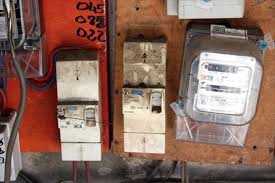APA-Abidjan (Cote d’Ivoire) Over 80 sessions and more than 4,700 people were targeted, from January to early June 2023, during awareness-raising campaigns carried out by electricity and water fraud controllers in Abidjan and the country’s inland.
Theft on water and electricity distribution networks in Cote d’Ivoire causes huge losses of resources in these sectors.
In the District of Abidjan, which has a population of over six million inhabitants, the scale of this phenomenon is even greater.
It is perpetrated by customers of the ‘Compagnie ivoirienne d’électricité (CIE) or the Société de distribution d’eau de Cote d’Ivoire (SODECI), who use illegal means to avoid registering the energy or water actually consumed.
Fraud is also perpetrated by illicit resellers, in particular people who have no contract and who make clandestine connections to the water or electricity distribution grids, distributing and marketing water and electricity to non-subscribers known as receivers.
These resellers use all necessary means to operate in spite of controls. Faced with this widespread fraud, the Ivorian state has had the National Assembly adopt an Electricity Code to crack down on utility fraud.
On June 26, 2019, the Ivorian parliament passed a law to crack down on water fraud.
Alongside the state, and based on these laws, the Group has for some years been carrying out joint moves to raise public awareness of the consequences of fraud in these sectors.
Throughout the year, inspection operations are carried out on water and electricity distribution networks, as well as on meters.
These are carried out throughout the country by the Group’s mixed teams.
In view of the importance of the subject, the “anti-fraud awareness controllers” crisscross regional departments throughout the country to meet the target populations, including the prefectural
body, community chiefs, religious guides and opinion leaders.
With this in mind, from January to May 2023, the “anti-fraud awareness controllers” toured several localities in Abidjan.
The initiative has been welcomed by the local population, who act as relays in the fight against utility fraud.
Imprisonment, deterioration in service quality and the risks associated with electricity and water are just some of the negative effects of fraud that people in the various localities and peri-urban areas visited were able to understand during the awareness campaign.
AP/fss/as/APA


